
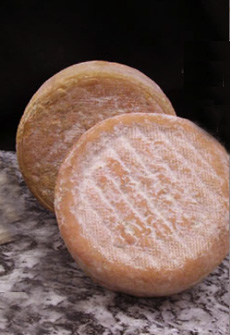
If you couldn’t tell from the pungent aroma, the reddish rind is a dead giveaway of a washed rind cheese (generally washed in wine). Photo courtesy of ForeverCheese.com.
August 2005
Last Updated February 2010
|
 |
Cheese Tasting Terminology
Page 5: Pressed & Washed Rind Cheese
This is Page 5 of a five-page article. Click on the black links below to visit other pages.
Washed Rind Cheeses or “Aromatics”
These are pungent, aromatic cheeses covered in a bacterium called Breyibacterium linens (B. Linens), which contributes to the ripening and the aroma. The cheeses are washed in brine, often mixed with an alcohol like beer, brandy, cider or wine. Most washed rind cheeses will ripen into soft cheeses, but some remain firm.
Examples: Epoisses, Livarot, Munster, Prattigau. |
|
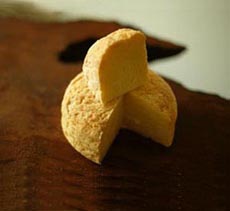
Cowgirl Creamery’s gorgeous munster-style Red Hawk, a NIBBLE Top Pick Of The Week. |
Washed Rind Cheese Textures |
Aromas & Flavors |
- Chewy
- Elastic
- Fatty
- Melting
- Moist
- Spreadable
|
|
- Assertive
- Barnyardy
- Beefy
- B. linens
- Dominant
- Eucalyptus
|
- Fruity
- Gamy
- Lingering
- Pervasive
- Stinky
- Sweaty
|
| |
|
Lightly Pressed Cheeses (Pressed, Uncooked)
One of the largest groups of cheeses, the paste is usually semi-firm to firm. While the number of different cheeses in this category is large, the most common form of lightly pressed cheese is the ever-popular and versatile Cheddar.
The next time you have an opportunity, compare Cheddar to Emmenthaler or Gruyere, two popular cheeses whose curds have been cooked. While they will seem related, look for the cooked milk aroma in the latter two.
Example: Cantal, Cheddar, Salers.
|
|
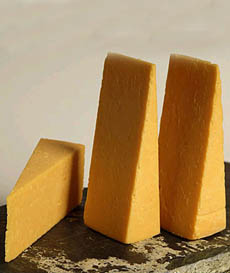
Double Glocester Cheddars from England, available at iGourmet.com. |
Lightly Pressed Cheese Textures
|
|
- Melting
- Pliable
- Semi-Soft
- Smooth
- Supple
- Yielding
|
- Earthy
- Fruity
- Grassy
- Herbaceous
- Straw/Hay
|
| |
|
Pressed Cheeses (Pressed, Cooked)
These are traditionally the biggest wheels of cheese, which hail from the mountains. The difference between these and the Lightly Pressed group of cheeses is in the cooking of the curds before the wheels are formed.
Examples: Beaufort, Emmenthaler, Gruyère.
Jarlsberg is an Emmenthaler-style (Swiss) cheese that originated in Jarlsberg, Norway. The holes are more properly called “eyes.” Photo courtesy of AdvantageCheese.com. |
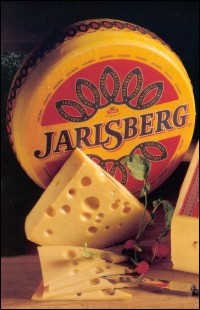 |
|
|
- Bold
- Crumbly
- Dense
- Dry
- Firm
|
- Flaky
- Grainy
- Hard
- Sandy
- Sturdy
|
- Caramelly
- Herbaceous
- Lingering
- Nutty
- Sharp
|
|
| |
|
There’s no quiz: Just enjoy building your knowledge of this most wonderful of foods. If you have comments or additions to this list, click here to send them to us.
Go To The Article Index Above
You Love It, Now Learn It
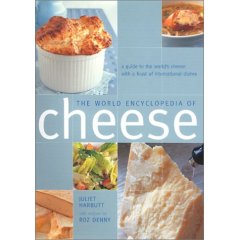 |
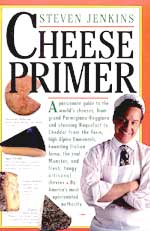 |
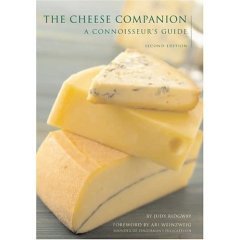 |
| The World Encyclopedia of Cheeses: An authoritative, fact packed guide to the cheese world. Click here for more information. |
Cheese Primer: Share in Steve Jenkins limitless knowledge. Click here for more information. |
The Cheese Companion: This accessible book is a comprehensive guide to selecting and enjoying the world's cheese. Click here for more information. |

|








